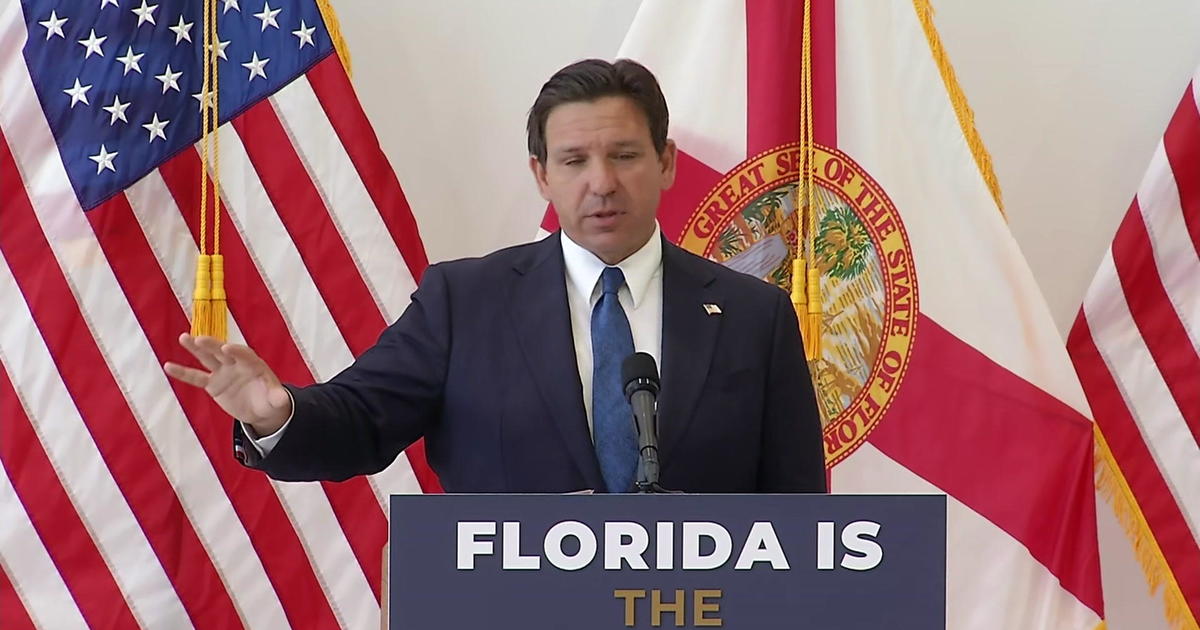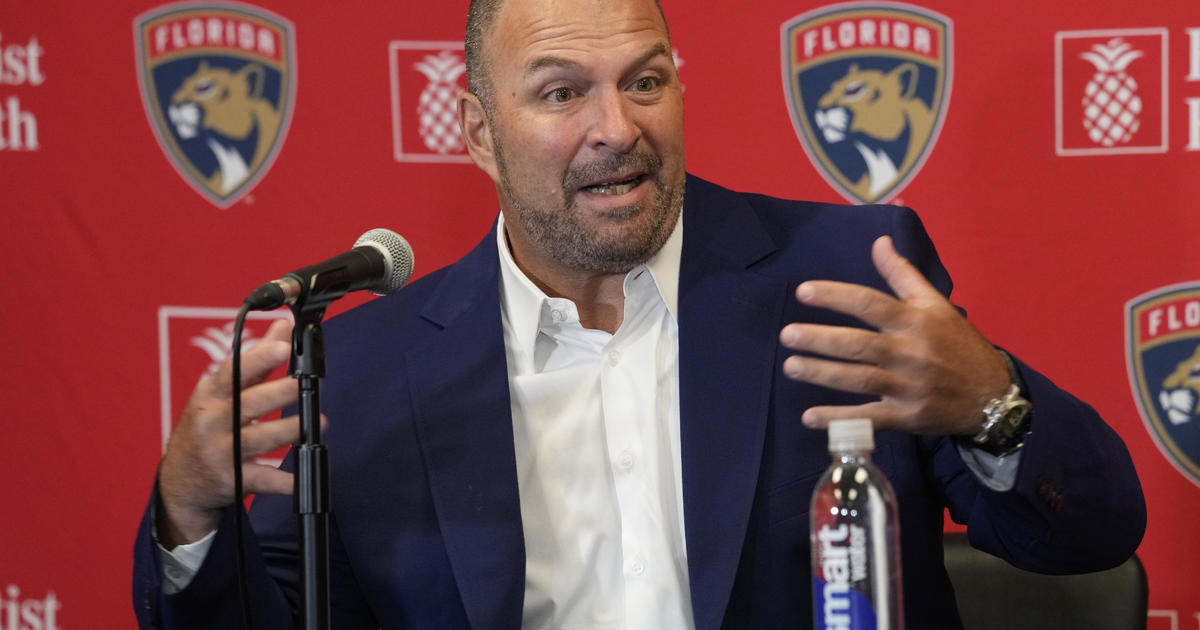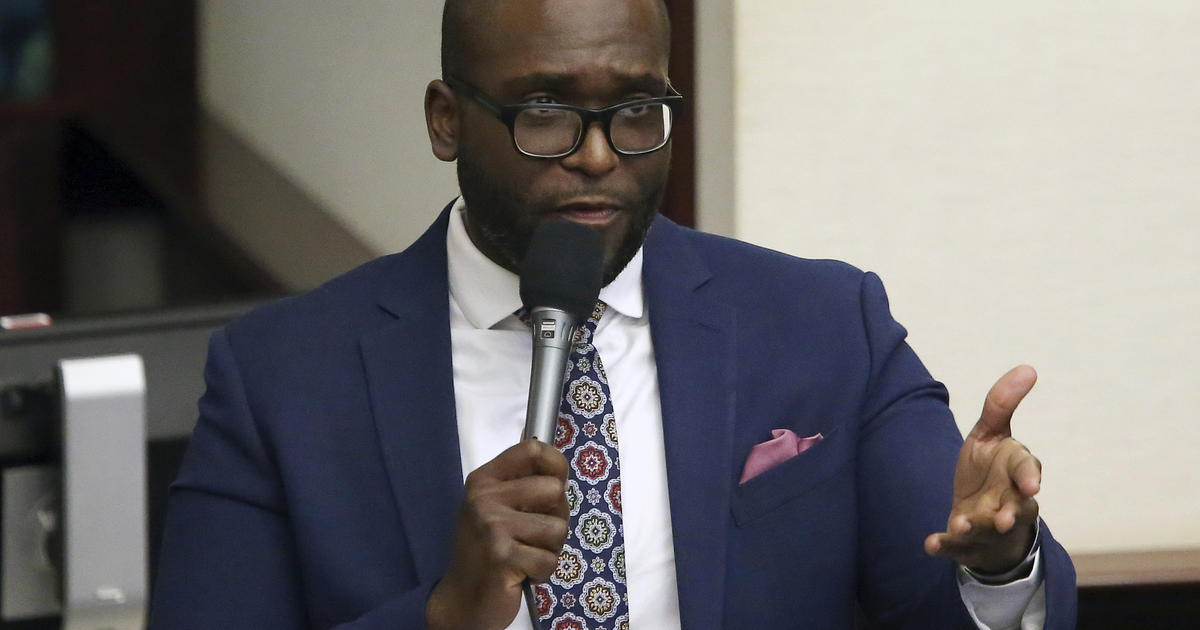Florida Testing Debate Shifts For Republicans
Follow CBSMIAMI.COM: Facebook | Twitter
TALLAHASSEE (CBSMiami/NSF) -- For years, debates about holding Florida teachers and schools accountable followed a predictable pattern: Democrats and teachers unions criticized the plans as being too heavily reliant on standardized testing, while Republicans pushed through the plans and insisted that measuring student progress ensures children will learn.
This year, the terms of the debate have changed.
Even as former Gov. Jeb Bush bases a potential presidential candidacy on his work ushering in more accountability for Florida schools, Republicans in the Legislature are looking to roll back the testing regime that Bush helped promote during and after his time in office.
Speaking in February at a summit hosted by the Foundation for Florida's Future --- an organization founded by Bush --- Gov. Rick Scott referred to the complaints of parents, teachers and students about the number of exams administered in public schools.
"They think we should do more learning and do less testing, and I agree with them," he said.
Fueling the turnaround, say longtime critics of the state's testing system, is a parental uprising that has spread through social media and has amplified the complaints of groups like the Florida Education Association, the state's largest teachers union. "Opt out" groups have begun sprouting, advocating a form of civil disobedience against the statewide tests.
"The difference between now and before?" FEA President Andy Ford said. "Parents are now frustrated with the system."
"I think it's really a bottom-up, bubbling-up type of issue," said House Minority Leader Mark Pafford, D-West Palm Beach. " ... All politics is local and I think they've done a very good job of grabbing the attention of Republican leadership."
BLAME GAME
How Florida got into its current situation is, depending on the source of information, either the fault of Republican lawmakers and governors or the responsibility of overzealous local school districts. As they attempt to revise their position on testing, figures in the GOP have generally cast local districts as a key part of the problem.
"From the time I came into this job, as I met and did roundtables with teachers, here's what I heard a lot: I heard, 'Oh the state requires this, the state requires this,' " Scott told reporters recently. "And I always made sure I took somebody from the Department of Education with me, because, often that was not accurate. Some things are required at the district level."
In his remarks to the foundation summit in February, Bush took a similar tack in both defending the testing regime while calling for lawmakers to consider changes.
"Assessing where students are, developing customized strategies to ensure that students learn, is important. I think some school districts just go nuts about this stuff," Bush said. "And the Legislature should be reviewing these things so that the tests really do validate critical thinking skills, that there are fewer of them. But they really need to continue to be part of a robust accountability system, for sure."
Others say that's a dodge. Over the years, the state has passed laws requiring local school districts to administer end-of-course exams in subjects where the state doesn't test students itself. And districts have to test some students for the purpose of "progress monitoring."
"I think it's a dance that we're trying to do in this city, where you've got the Department of Education and the Legislature, who are trying to figure a way out of the mess that's been created and put blame somewhere else," Ford said. "They're blaming local school districts, and local school districts, for the most part, are only following what state law mandates."
TESTING TIME
At the same time, the amount of time students spent on state tests in the 2013-14 school year was down across the board from six years earlier. In 2007-08, for example, third graders spent 6.5 hours on tests, but only spent 4.67 hours in 2013-14. Students in eighth grade saw their testing time slide from 11.75 hours to 8.33 hours.
But those numbers are set to creep back up this school year. Third graders will be tested for 5.33 hours, according to a Department of Education report. Eighth graders will face 10 hours of exams.
And in some cases, the numbers have grown even beyond the 2007-08 benchmarks. In seventh grade, students will spend 7.3 hours on tests this year, up from 4.67 hours last year and 6.33 hours in 2007-08.
Still, the opposition to testing has grown even before the Florida Standards Assessments --- the new tests being introduced this year --- are administered. And that has clearly shaken the Legislature.
Kathleen Oropeza, co-founder of the advocacy group Fund Education Now, said her group would frequently be ignored in recent years when it tried to get lawmakers to back off of the state's testing-heavy accountability system. No more.
"We're now at a point that we're a critical mass, and they can no longer ignore that this is a system that is critically flawed and in danger of collapsing," she said.
Even House Speaker Steve Crisafulli, a Merritt Island Republican who drew applause at the February foundation meeting by vowing that "we will not retreat from accountability," has said a review is warranted.
"I think there's a balance, and I think this is an opportunity for us to find what that balance is," he said.
SOLUTIONS
So far, two major plans to deal with testing have emerged from Republican leaders, whose party holds commanding majorities in the House and Senate.
A report issued by Education Commissioner Pam Stewart, and backed by Scott, recommends scrapping a language-arts test in 11th grade, getting rid of progress-monitoring requirements and making a college-readiness test given to some students optional. Stewart also recommended barring local districts from giving final exams in classes for which the state has end-of-course tests.
Scott has already issued an executive order suspending the language-arts tests for high-school juniors.
Meanwhile, Senate Education PreK-12 Chairman John Legg, R-Lutz, has sponsored legislation (SB 616), that would cap the amount of time students spend on state and local tests at 5 percent of their schools hours.
The bill would also authorize districts to use something other than tests to assess students in some courses and would reduce the share of a teacher's evaluation that would be based on student learning growth.
A House bill will be available the first week of the session, which begins Tuesday, said House Education Chairwoman Marlene O'Toole, R-Lady Lake. She recently told her committee that it would aim to reduce testing while giving districts more flexibility on local tests, progress monitoring and teacher evaluations.
"I would say it's fair to say we're going to get this on the floor as soon as we can," she said.
But some education groups and lawmakers want more. While schools would not face negative consequences for poor grades on the state report card this year, the letter grades would still be assigned. Students would still be held back in the third grade or prevented from graduating based on certain test results, and teacher pay would still be tied to student performance on the exams. All that for an assessment that's never been used in Florida before, critics say.
"The tests are making life decisions for human beings, whether they're 10 years old or they're 59 years," Ford said.
Sen. Bill Montford, a Tallahassee Democrat who doubles as chief executive officer of the Florida Association of District School Superintendents, has filed legislation (SB 774) that would suspend most of the state's accountability system for two years.
Under Montford's proposal, students could not be held back a grade or barred from graduating based solely on test scores, though those results would be a factor; schools would not be assigned a letter grade; and the teacher evaluation system would be modified.
Still others are pushing for more. Oropeza said any suspension should last at least three years.
"I think that this problem is so epic, that it's got to be multiple years," she said.
But Legg is cautious about any sort of pause in the system.
"Because you're looking at very little accountability then for those students in those key grade areas," he said.
Whatever the solution, people who have spent years fighting the Legislature on testing say they're approaching Republican lawmakers' newfound zeal with skepticism.
"It is hard to imagine that legislators can find a solution in the next 60 days to a problem that they have spent 15 years creating," Ford said.
"The News Service of Florida's Brandon Larrabee contributed to this report."



